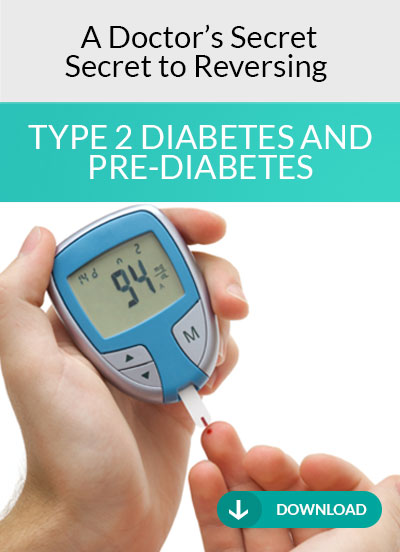Can Hormone Imbalance Cause Weight Gain?
So you need to lose weight. You start dieting and exercising, but nothing happens. The weight doesn’t budge. You’re thinking “I can’t lose weight no matter what I do.” It’s frustrating, I know.
Here’s the problem. Your approach is backfiring because you’re not looking at your hormones. This is a common mistake because there’s a huge connection between hormone imbalances and weight gain. Hormone imbalances are likely the reason why you can’t lose weight. By not paying attention to your hormones, you might actually be making the problem worse.
Which Hormones Cause Weight Gain?
If you’re struggling to lose weight, you and your functional medicine provider can zero in on a number of hormones. Looking at what hormones are too high or too low compared to other hormones is going to control what you notice in your physical body. Where the weight gain is happening in your body will give you a clue as to what hormone or hormones are imbalanced.
How to Lose Belly Fat by Balancing Hormones
Insulin and cortisol are typically the hormones to blame for weight gain around your midsection and belly. Insulin resistance is really common in people who can’t lose weight in the belly.
A lot of people don’t know they have insulin resistance because a typical blood test only looks at whether or not you have diabetes. Insulin resistance happens when your body starts to ignore insulin’s blood-sugar-lowering signals. Consequently, your body has to produce more and more insulin in order for it to get the message that it needs to lower blood sugar. Insulin could be driving your weight gain because it’s a fat-storing hormone.
Cortisol is another fat-storing hormone involved in weight gain. It is a stress hormone so you might notice that you gain weight in the middle when you are stressed. Unfortunately, doctors often don’t measure cortisol levels. On those rare occasions when cortisol is measured, it’s usually from one morning blood draw rather than measuring levels throughout the day. Measuring cortisol levels throughout the day (known as a 4-point salivary cortisol test) gives information about your circadian rhythm and how well your adrenals are functioning in the morning, afternoon, and night.
Blame insulin resistance and cortisol for cravings for sugar, carbs, and salt. Those are the hormones that make you overeat the wrong foods. Balancing these two hormones can go a long way in helping you get rid of belly fat.
Hormones and Weight Gain After 40
Estrogen is the hormone typically responsible for weight gain in the hips, thighs, and breasts. As you start to go through perimenopause, your estrogen levels can become imbalanced in relation to other hormones. Even if your estrogen levels are normal, if your progesterone levels are low you won’t have anything to balance out the estrogen. The result? Your body goes into a fat-storing mode and you can’t lose weight no matter what.
Testing for estrogen by itself does not paint a full picture of what’s going on in your body. Even if you have “normal” levels of estrogen, if there is an imbalance between estrogen and other hormones, especially progesterone, you develop estrogen dominance. Having too much estrogen can lead to stubborn weight gain and storing fat, not to mention fatigue, headaches, poor sex drive, and breast tenderness.
How to Lose Weight All Over the Body
Weight gain all over the body is a red flag that your thyroid hormones are out of balance. There are 11 thyroid markers, but most of the time, when doctors test thyroid, they only measure thyroid-stimulating hormone (TSH). This is not enough information to say for sure whether or not you have a slow metabolism. A lot of times doctors will tell patients, “Your thyroid labs are normal. I checked your thyroid and it’s fine,” when in fact the thyroid is actually off kilter.
Make sure your doctor is performing a more thorough thyroid panel that includes T4, T3, and TSH, at the very least. This is the minimum amount of information you would need to find out if your thyroid hormone imbalances are causing weight gain. In my patients, I like to measure total T4, total T3, free T4, free T3, TSH, T3 uptake, and Hashimoto’s antibodies at a minimum on anyone I suspect of metabolism issues.
Can You Exercise Your Way to Weight Loss?
Exercise for weight loss is important, but many people who are on a weight loss program are exercising the wrong way. A lot of people will try to over-exercise their way out of weight problems, which doesn’t work.
Exercise is a form of stress on the body. Sometimes, we’ll see people doing too much exercise for what their body can handle. It’s actually making them worse or making them gain weight because it’s a stress and it’s causing more cortisol problems or it’s affecting their other hormones. That stress is what’s causing them to not be able to lose weight if their body can’t handle that stress.
The right amount of exercise that the body can tolerate is beneficial for weight loss. So you have to find what your body can tolerate. As a functional medicine provider, I help patients figure out how much exercise is too much.
I always look at the hormone levels first because that’s a common thing that gets overlooked in the standard medicine model. Hormone levels will help guide me how to customize my patient’s exercise routine. Many patients come to me and they’ve never had their insulin checked, they’ve never had anything but their TSH looked at, they have no idea what their adrenal glands are doing. Working on some of those basic hormone imbalances can clear up so many problems, including weight gain. When we start fixing those root causes, the extra weight comes off easily, without having to do anything extreme with exercise.
Best Diet for Weight Loss
There is no one-size-fits-all diet for weight loss. Hormone levels help guide what a person should eat and how often. Some people do really well with intermittent fasting while others should eat more often throughout the day. The patterns seen in your hormone panel especially with blood sugar, insulin, and cortisol will help determine what type of diet is best for you. For other people, focusing on stress management and sleep are more important than diet because if patients are having a lot of cortisol problems, it’s causing belly fat to build up.
Hormone Weight Loss Therapy
As a functional medicine provider, I can help you with your hormones and weight loss. That way you don’t have to try to figure out on your own which hormones are causing you to gain weight. We can run the right labs, figure out what hormones are imbalanced, and what would work best for your body. For example, we order the saliva 4-point cortisol panel instead of just a single morning blood cortisol, so that we can measure your cortisol levels throughout the day.
Sign up for a free 15-minute discovery consultation with the Caplan Health Institute. If you become a patient, we’ll come up with an effective, personalized weight loss plan that takes into account your hormones. The end result? We’ll get you back to your sleek, slender, and head-turning self. Your energy, sex drive, and sleep will get better too!





